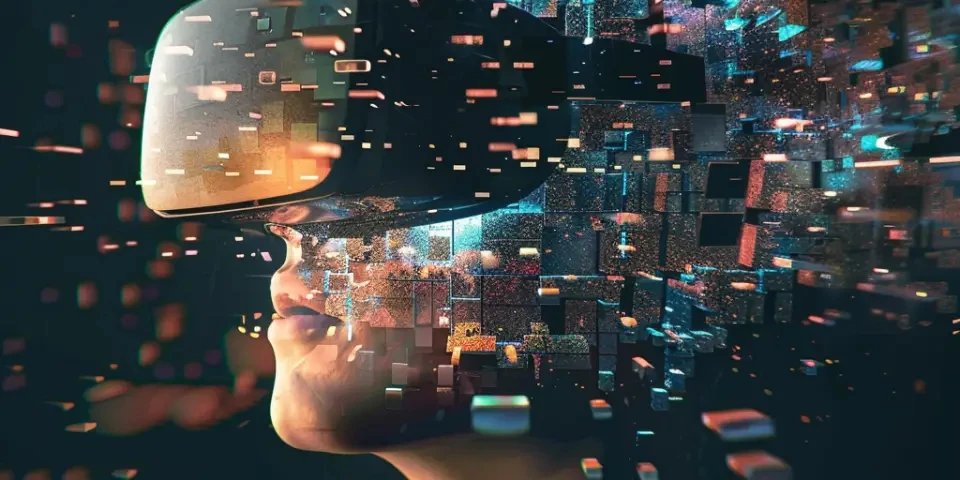Unlock the Power of Artificial Intelligence How AI Can Revolutionize Your Everyday Life
Artificial Intelligence (AI) has been making rapid advances in recent years, and its impact on our everyday lives is becoming increasingly evident. From personalized recommendations to voice assistants, AI is revolutionizing the way we live, work, and interact. In this article, we will explore the various ways in which AI can transform and enhance different aspects of our daily routines.
1. Smart Homes: Redefining Comfort and Convenience
Imagine a home that understands your preferences and adjusts lighting, temperature, and security settings accordingly. AI-powered smart home systems use machine learning algorithms to analyze your behavior and create personalized environments. These systems can also automate various tasks, such as managing energy usage, ordering groceries, and even watering plants.

2. Virtual Assistants: Your Intelligent Personal Aide
Virtual assistants like Siri, Alexa, and Google Assistant have become ubiquitous in our lives. These AI-powered tools can perform a wide range of tasks, from setting reminders and answering questions to controlling smart devices and playing music. With continuous improvements in natural language processing, virtual assistants are becoming more conversational, intuitive, and indispensable.
3. Healthcare Revolution: Saving Lives and Improving Outcomes
AI is transforming the healthcare industry, enabling earlier diagnosis, personalized treatment plans, and improved patient outcomes. Machine learning algorithms can analyze vast amounts of medical data and identify patterns that humans might miss. AI-powered devices can also monitor patients remotely, detect abnormalities, and alert healthcare providers, potentially saving lives in critical situations.
4. Enhanced Customer Experience: Tailored to Perfection
Businesses are utilizing AI to offer personalized experiences to their customers. Recommendation engines use AI algorithms to analyze customer data and provide tailored suggestions, resulting in increased customer satisfaction and loyalty. Chatbots, powered by AI, can provide instant customer support, answering queries and resolving issues round the clock.
5. Intelligent Transportation: Navigating Towards Efficiency
AI is revolutionizing transportation, making it safer, more efficient, and sustainable. Self-driving cars, powered by AI algorithms and sensors, promise to eliminate human error and reduce accidents. Traffic management systems leverage AI to optimize traffic flow and reduce congestion. Additionally, ride-sharing services utilize AI to match drivers and passengers efficiently, contributing to reduced traffic and carbon emissions.
6. Education Evolved: Individualized Learning Experiences
AI-powered learning platforms are reshaping education by providing personalized learning experiences. Adaptive learning algorithms assess students' strengths, weaknesses, and learning styles to create customized study plans. This individualized approach improves engagement, knowledge retention, and overall educational outcomes.
7. Financial Intelligence: Empowering Smart Decision Making
AI is transforming the financial industry by enabling data-driven insights and smarter decision making. Fraud detection algorithms can analyze large volumes of financial data in real-time, identifying suspicious activities and preventing fraud. AI-powered robo-advisors provide personalized investment advice, based on individual risk profiles and market trends, helping investors achieve their financial goals more efficiently.
8. Manufacturing Revolution: Efficient and Autonomous Processes
AI-powered robots and automation systems are transforming manufacturing processes, making them more efficient, accurate, and autonomous. Machine learning algorithms can analyze and optimize production data in real-time, minimizing downtime and improving overall productivity. Predictive maintenance algorithms can detect equipment failures before they occur, reducing costly unplanned downtime.
9. Content Creation: The Rise of AI Creativity
AI has started to make an impact on content creation, generating text, images, and even music. Natural language processing algorithms can generate high-quality articles and reports, while AI-powered image recognition systems can create stunning visuals. However, human creativity and judgment still play crucial roles in ensuring the quality and relevance of AI-generated content.
10. Personal Fitness and Well-being: AI as Your Health Coach
AI-powered fitness trackers and health apps have become popular companions for those seeking to improve their well-being. These devices can monitor vital signs, analyze activity levels, and provide personalized insights and recommendations for better health. AI algorithms can even predict potential health issues and offer early interventions for improved long-term well-being.
These are just a few examples of how AI is revolutionizing our everyday lives. From the comfort of our homes to the efficiency of our workplaces, AI is unlocking new possibilities and transforming various industries. Embracing AI and its potential will not only enhance our daily routines but also drive innovation and shape the future of our society.
Frequently Asked Questions:
Q: Is AI a threat to job security?
A: While AI may automate certain tasks, it also creates new opportunities and helps in enhancing human productivity. The focus should be on reskilling and upskilling to adapt to the changing job landscape.
Q: Can AI replace human creativity?
A: AI can augment human creativity by generating ideas and assisting in content creation. However, true creativity remains a distinct human trait that cannot be replicated by machines.
Q: How is AI ensuring data privacy and security?
A: AI is being used to develop advanced cybersecurity systems that can detect threats, protect data, and safeguard privacy. However, ensuring proper regulations and ethical practices is crucial to maintain data integrity and security.
References:
1. Smith, J. (2020). Artificial Intelligence and Robotics in the Home (Report No. WPR00097-WW).].
2. Healthcare IT News. (2021). How artificial intelligence and machine learning are improving healthcare outcomes.].
3. Deloitte. (2020). Navigating the future of AI in manufacturing: Seven strategies to make AI a transformative engine of productivity.].
Explore your companion in WeMate